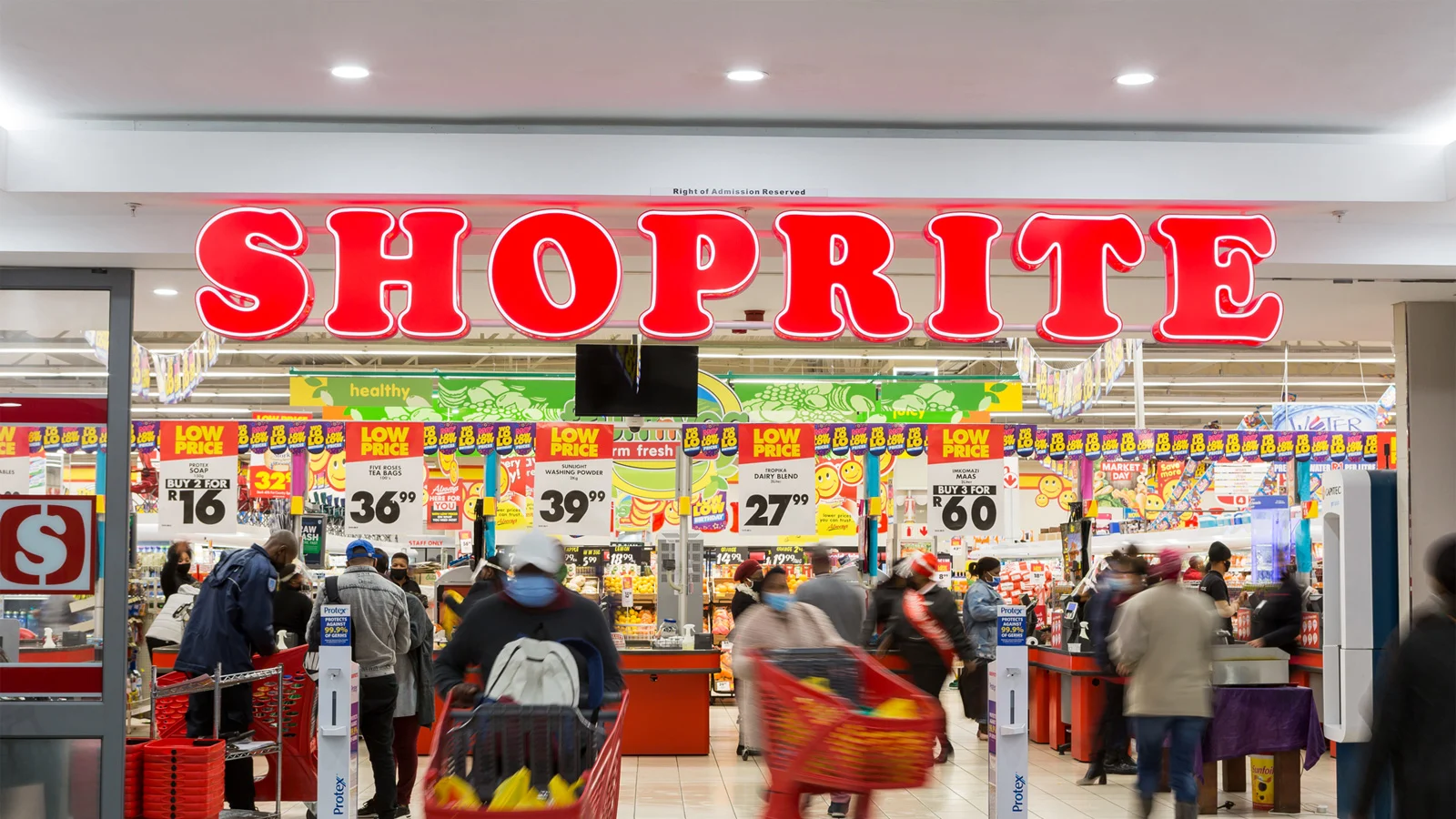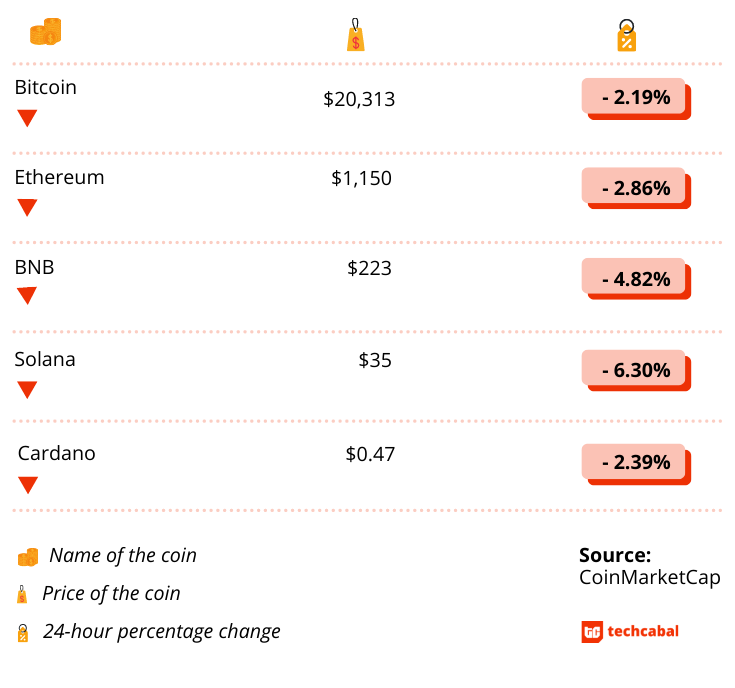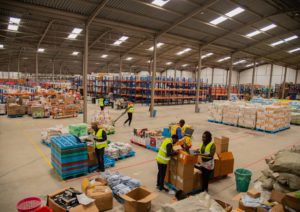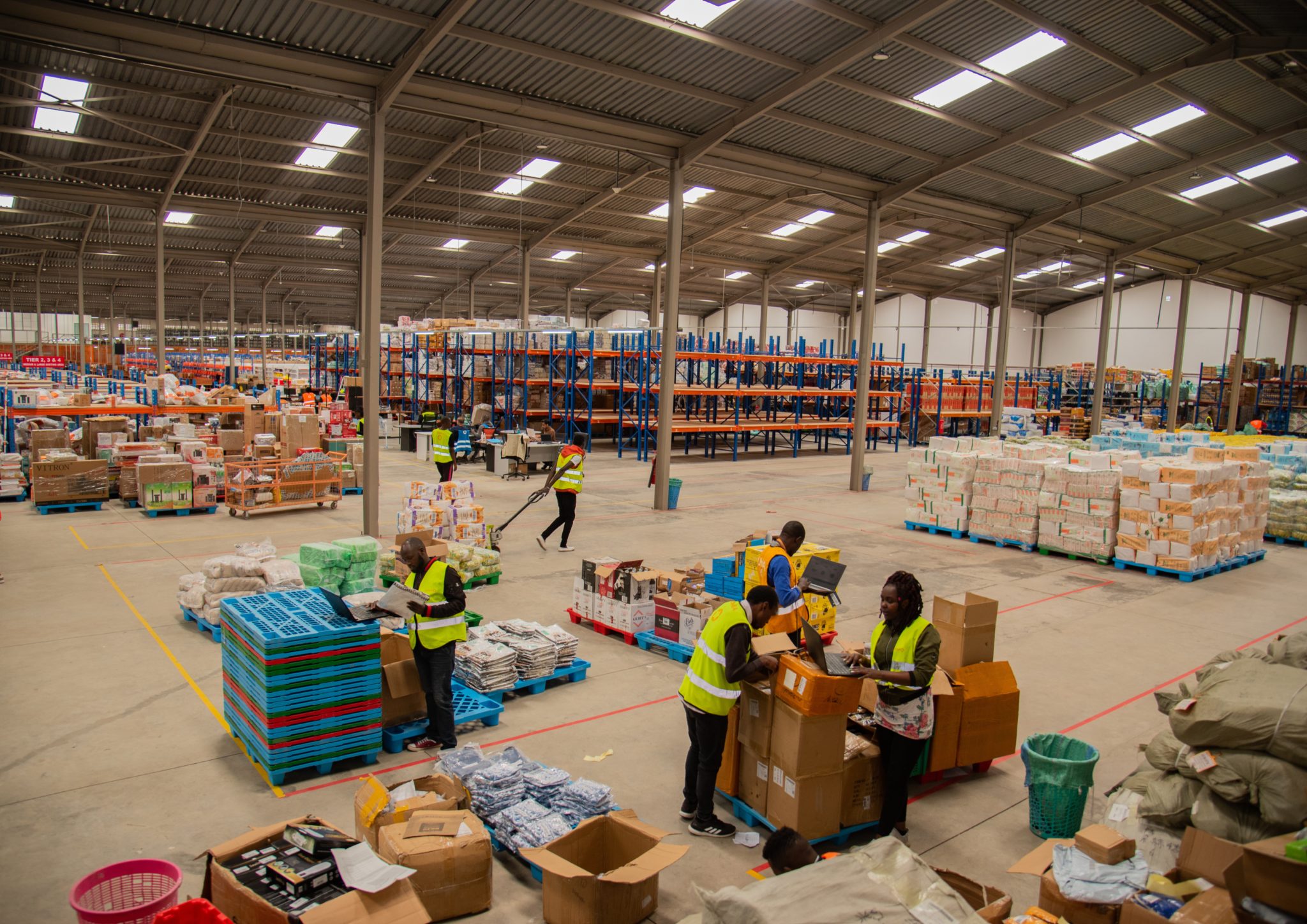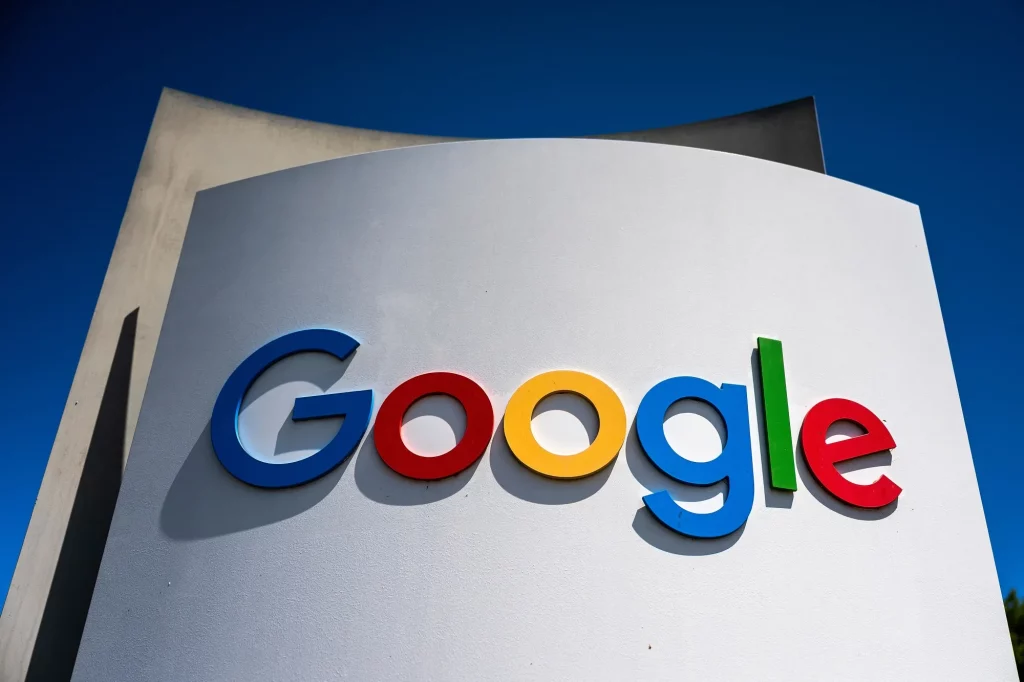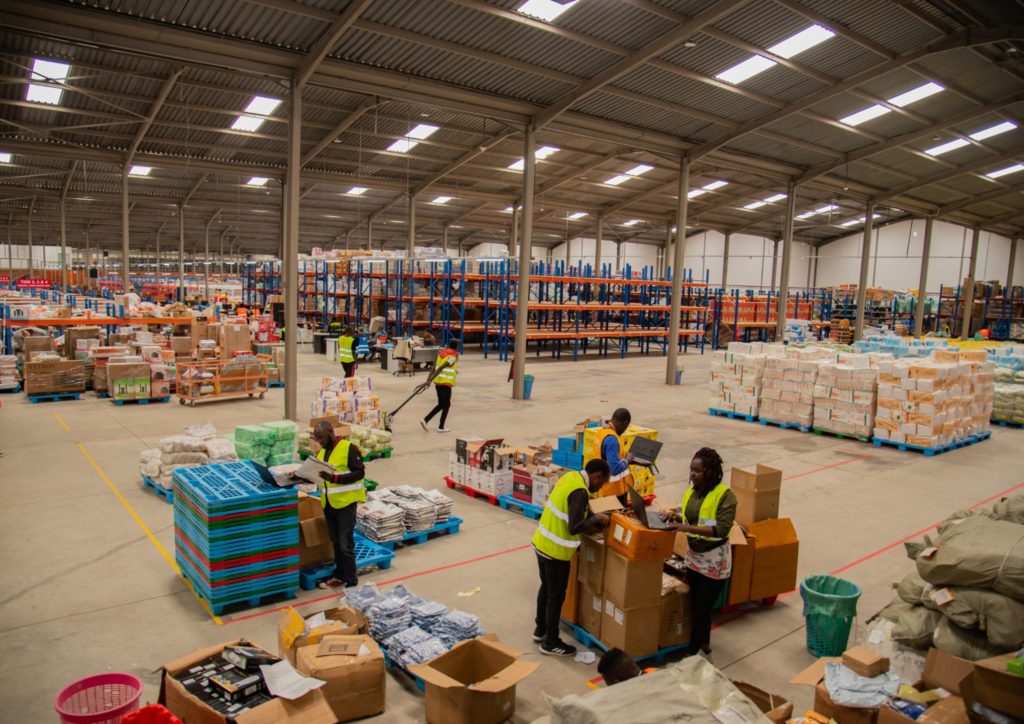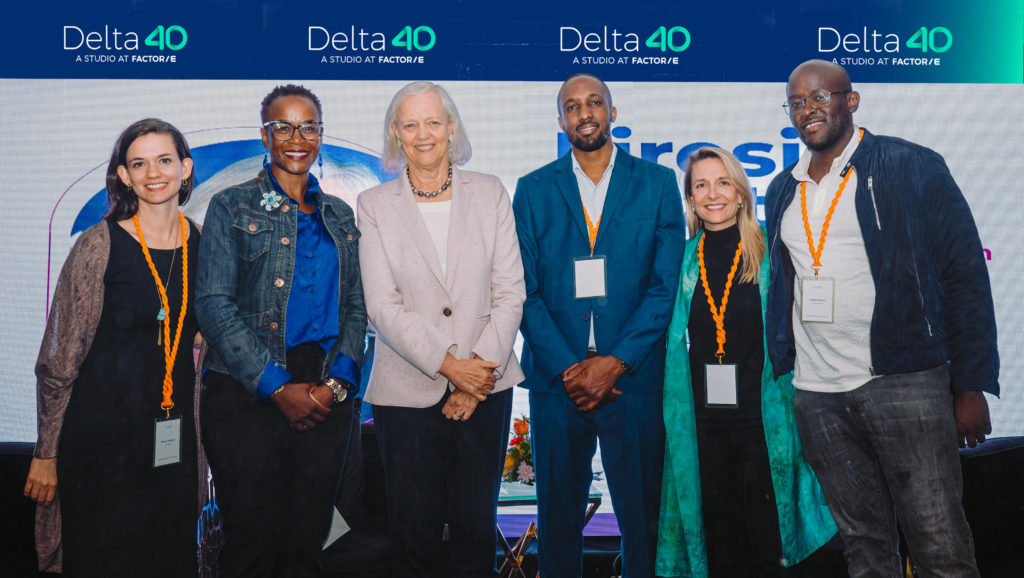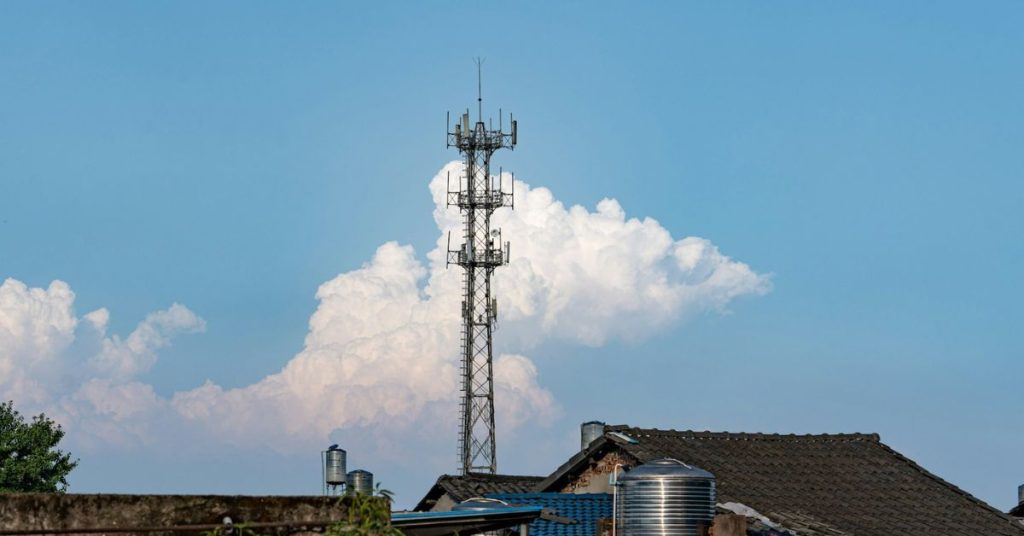
IN PARTNERSHIP WITH

Good morning 🌄
South Africa won’t be switching off analogue TVs anytime soon.ICYMI: South Africa planned to switch off connections to all analogue TVs that used those double-pronged antennas.
eTV Africa, a South African TV station, however, took the South African government to court because many South Africans—about 5.7 million households—are still using analogue connections.
The South African government wants to provide free digital transmission devices for some of those households—those earning less than R3500 ($217) per month. It hasn’t worked out though; less than half of the 3.75 million households have gotten the devices.
Now, eTV has won the suit with Judge Nonkosi Mhlantla calling the South African government’s decision “irrational and unlawful”.
In today’s edition
- RansomHouse is selling ShopRite’s customer data
- Disney+ is in more African countries
- COVID vaccines go mobile in Kenya
- Opportunities
RANSOMHOUSE IS SELLING SHOPRITE’S CUSTOMER DATA
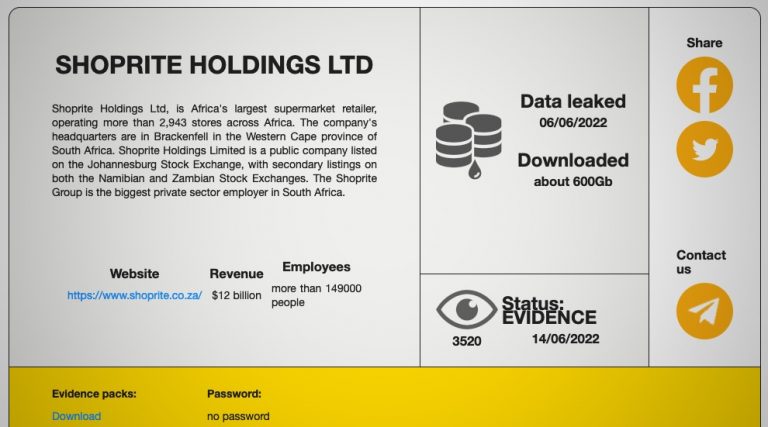
You’ve heard of kidnapping for ransom but have you heard of datanapping for ransom?
Well, it’s happening and everyone’s favourite shopping conglomerate, ShopRite, is rite in the middle of it. In recent news, cyber extortionists have put up ShopRite’s customer data for auction on the dark web.
What’s happening?
Earlier this month, ShopRite announced that it had discovered a “possible data breach” in its systems. According to the group, an unauthorised party accessed the data of shoppers from Namibia, Zambia, and Eswatini who transferred money outside South Africa.
A few days after the announcement, RansomHouse, a global cyber extortion group, claimed responsibility for the attack and threatened to leak all the users’ data if ShopRite didn’t pay up.
The cyber terrorists claimed they not only had names and ID numbers of ShopRite’s users but also photos of their government-issued ID, data weighing 600GB in total. To prove it had the data, RansomHouse posted a taste of the data on the dark web, about 365 files weighing over 400MB.

What RansomHouse wants?
As its name suggests, the cyber-terrorist group wanted a ransom in exchange for deleting ShopRite’s data.
Data extortion isn’t new. In fact, it’s on the rise with ransom for data extortion rising from $761,106 in 2020 to $1.85 million in 2021.
For RansomHouse, ShopRite is not the group’s first target. It has targeted at least 5 companies including a government parastatal in Canada.
In all its attacks, the group claims to target network vulnerability instead of ransomware like other cyber extortionists.
With its attack on ShopRite, RansomHouse also claims that the shopping conglomerate’s network was easy to access and barely encrypted. “It’s been quite some time since we encountered something that outrageous. Their staff was keeping enormous amounts of personal data in plain text [and] raw photos packed in archived files, completely unprotected.”
What’s ShopRite saying?
ShopRite is looking the wrong way.
After announcing the breach earlier this month, ShopRite informed affected users and advised them to change their pins and protect their passwords. The company also said investigations were underway, and that it would implement additional security measures.
RansomHouse also claims that ShopRite has refused to negotiate with them. “We’ve waited long enough for ShopRite to contact us and prevent the further leak, but they could not have cared less about their clients—they’ve only promised to notify everyone involved with an SMS,” RansomHouse said.
From all indications, ShopRite is sticking to its tag: Low prices for everybody. 💀
Big picture: With RansomHouse auctioning off the data on the dark web, several people in southern Africa risk getting their data compromised by nefarious individuals. In more RansomHouse news, the cyber-terrorist group recently added US chipmaker AMD to its victim list after reportedly stealing 450GB of user data.
Don’t just send money, send money fast. Send and receive money directly to mobile wallets, bank accounts, Barter or through cash pickup with $end.
Visit send.flutterwave.com and do it now!
This is partner content.
DISNEY+ IS IN MORE AFRICAN COUNTRIES

Following its South African launch last month, the Walt Disney Company has launched Disney+ in 16 markets across the Middle East and North Africa (MENA).
In Africa, those countries include Algeria, Egypt, Libya, Morocco, and Tunisia.
A fiscal goal becoming physical
Disney+ has a goal to roll out its service in over 160 countries by the time it does its fiscal report in 2023. This is more than double what it had when it made the announcement. So far, it has been aiming right.
In March, Disney+ announced the launch dates for 42 countries, and these 16 MENA countries and territories are a part of it.
New countries, new version
In these new countries, Disney+ will be a bit different.
One major difference is that instead of using a Disney ID, the users in these markets will have to login in with a phone number.
The MENA version will be a closer variant to the version of the Disney+ Hotstar used in India and South-East Asia. Disney+ Hotstar offers Indian and international content across nine languages, including live sports programming (cricket, football, kabaddi, etc).
They are not exactly the same as, in addition to the programming from India’s Hotstar, the MENA version of Disney+ will have thousands of films, shows and exclusive originals from Disney, Pixar, Marvel, Star Wars, and National Geographic.
The move also brings Disney+ closer to its goal of reaching 230 to 260 million subscribers by 2024.
Fincra provides easy-to-integrate APIs developed and designed to launch seamless and reliable global payment solutions.
With Fincra’s customisable APIs, developers can build quick financial applications.
Build the best payment solutions on Fincra.
This is partner content.
COVID-19 VACCINES GO MOBILE IN KENYA
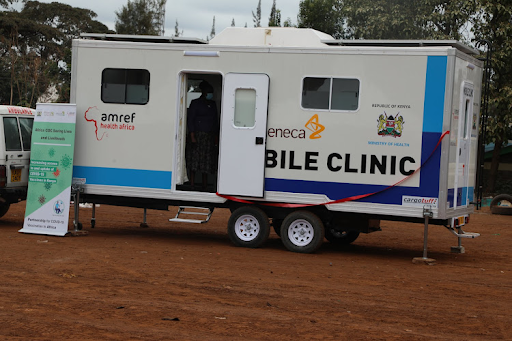
In Kenya, plans to literally drive up Africa’s COVID-19 vaccination are in motion.
Non-governmental organisation Amref Health Africa, multinational pharmaceutical AstraZeneca, and Kenya’s Ministry of Health are collaboratively launching a fleet of mobile vaccination clinics to increase vaccinations in remote communities across Kenya.
What is the state of vaccination in Kenya?
On average, only 17.7% of Africans are vaccinated. As of now, only about 31.4% of the adults in Kenya are fully vaccinated against COVID-19.
The movable clinics have backup power supplies and solar-powered fridges for maintaining the standards of the tools and supplies. They are also fitted with web-enabled computers to facilitate timely data capture and reporting. Their deployment will increase general vaccine uptake in the country.
There are currently 10 of the said mobile clinics and each of them have KPIs(key performance indicators). The 10 clinics aim to cumulatively vaccinate up to 1,000 people per day—that is 70–100 people each daily.
In addition to vaccination, they will also provide COVID-19 screening, post-immunisation care, and vaccine education.
Less about the destination, more about the journey
The purpose extends beyond protecting communities that are hard to reach from the pandemic. It is also a forward-thinking approach in preparation for future health emergencies like COVID-19.
Amref Health Africa hopes that the clinics will help Kenya incorporate vaccination services into its primary healthcare. This is possible as while on the move, they will provide education that can shrink the aversion to vaccination and increase awareness of non-communicable diseases that influence health emergencies. If sustained, this programme will create a pipeline or structure that may facilitate timely response to emergencies similar to the COVID–19 pandemic.
IN OTHER NEWS FROM TECHCABAL
Funding and support for African startups and the tech ecosystem don’t just come from investment firms, angel investors, corporates, and tech hubs. There are other players too. Some are development agencies who are giving their attention to African startups.
It seems like there might be a slew of African startups expanding off the continent. First was MFS Africa expanding to the UK, and now Kora, a Nigerian payment infrastructure has also launched a UK office.
This is partner content.
OPPORTUNITIES
- Apply Now! The 2022 #InclusiveFintech50 application period is now open! Seeking cutting-edge fintechs serving the underserved. Learn more and apply at inclusivefintech50.com.
- Snapchat’s Snap 523 Accelerator Programme is now open to applications from black content creators. Twenty-five selected creators will receive $10,000 per month for 12 months and a Google Pixel 7 Pro. Apply by August 12.
- Applications are now open for the Decentralised Umoja Algorand Bounty Hack II, by Algorand and Reach. The hackathon is a great opportunity for African developers to learn and build blockchain projects and win up to $3,000 in prizes. Apply by July 15.
What else is happening in tech?
- AfDB approves $2 million technical grant to boost electricity reforms in ECOWAS.
- African fintech startup Yellow raises $20 million in debt financing.
- Google and Apple raise concerns over an Italian spyware sold to governments.
- Google Hangouts is shutting down in November.









